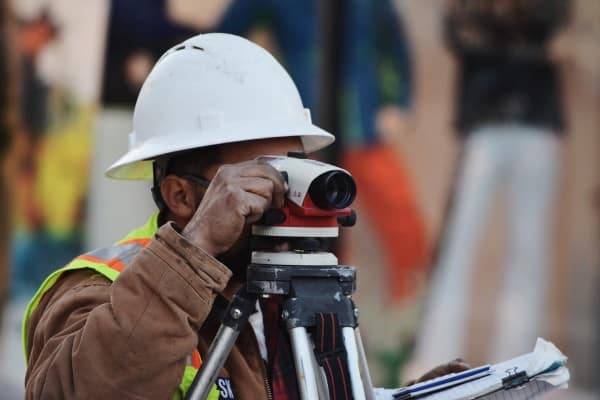This page contains affiliate links. This means if you a follow a link and make a purchase, at no additional cost to you, Humanitarian Careers will receive a commission. Thank you for supporting the site.
A career in the United Nations allows you to work for a highly prestigious organization, often in an international role. It also gives you the opportunity to work on projects that improve lives and reduce human suffering.
Across the UN, there are many roles open to qualified engineers. If you are an engineering student or recent graduate, or a highly experienced engineer with many years’ experience, and wondering how you can join the United Nations, we’ve put together this complete guide for you!
United Nations Engineering Roles
There are a huge range of engineering jobs within the United Nations. Different UN agencies, countries and contexts require different types of engineers. With that said, let’s go over a few of the main categories of engineering roles the UN often recruits.
The first type of engineers often recruited by the UN is structural engineers. These jobs include working in refugee camps and settlements for displaced persons providing engineering expertise. The UN also has roles for structural engineers working on UN premises and providing technical advice to a wide range of UN projects that require construction.
The second type of engineering jobs that can be found within the United Nations are for civil engineers. The UN recruits civil engineers to work on infrastructure projects that it funds. Civil engineer roles for the UN can work on road, bridge and building construction. There are also civil engineering jobs within the UN working on short-term emergency humanitarian responses, or on long-term development work.
Another type of engineering role within the UN is working on water and sanitation projects. The United Nations runs many programmes providing clean drinking water, latrines and washing facilities to people living in refugee camps as well as in poverty. If you are an engineer specializing in water and sanitation, there are many positions within the UN that you can apply for.
Electrical engineers are often recruited on UN projects. They work setting-up UN offices and on the premises that the UN is using. Large UN missions may also contract an electrical engineer to do maintenance and improvement works.
A final example of the kinds of engineering jobs the UN recruits are mechanical and automotive engineers. Across the world, the United Nations runs thousands of vehicles and uses huge amounts of equipment. The UN has roles for mechanical and automotive engineers maintaining vehicle fleets and providing technical advice to UN projects.
United Nations Agencies Recruiting Engineers
Almost every United Nations agency has roles for engineers. The United Nations runs projects all over the world covering a huge range of areas – from humanitarian and development work, to cultural preservation, to coordinating transportation and communication. However, there are some UN agencies that are more likely to recruit engineers. These include:
- UNHCR
- UNRWA
- UNOPS
- UN-Habitat
- UNDP
- UNICEF
UNHCR is the United Nations refugee agency. They often employ engineers to work in refugee camps and settlements for displaced people. These jobs can include constructing settlements, improving water and sanitation, building camp infrastructure, and repairing facilities needed for refugees. There are a wide range of jobs for engineers within UNHCR.
Another UN agency that regularly recruits engineers is UNRWA – the UN agency for Palestinian refugees. They recruit similar roles to UNHCR, but focusing on locations in Palestine, Jordan, Egypt, and Syria. If you are interested in helping Palestinians and want to work for the UN as an engineer, apply for positions in UNRWA.
UNOPS (United Nations Office for Project Services) focuses on delivering projects for United Nations agencies, partner organizations and governments. These can include infrastructure, development, humanitarian, and peace building projects. UNOPS is one of the best UN agencies to target if you are an engineer as they recruit a wide range of relevant jobs.
UN-Habitat is the UN agency focused on human settlements and sustainable urban living. With a focus on cities and urban spaces, UN-Habitat recruits engineers to work on their projects. These are often in advisory roles providing expertise to specific UN-Habitat initiatives.
If you are looking to work in the United Nations as an engineer, explore open positions at UNDP. As the UN’s development programme, UNDP employees’ engineers on a huge range of development projects. Civil, mechanical, and structural are all commonly recruited by UNDP.
UNICEF is the UN’s children’s agency. UNICEF recruits engineers to work on projects including school constructions, fleet maintenance and infrastructure projects. Civil engineers, automotive engineers and structural engineers can all find roles on UNICEF projects.
Qualifications Needed to Be an Engineer in the UN
If you are looking to join the United Nations an engineer, you need to get the right qualifications. It is best to think of this in two main steps. The first is becoming qualified in a specialised area of engineering relevant to the UN’s work. The second is building a wider understanding of what the UN does and how engineering is used to achieve its objectives.
Let’s take a quick look at both of these areas of qualifications…
The first area you should focus on if you want to work for the UN as an engineer is becoming formally qualified. In most countries, this requires doing a bachelors and master’s degree. In some countries you can specialise in an area of engineering at bachelor level, in others you do a broad engineering undergraduate before specialising by doing a post-graduate degree.
To join the UN as an engineer you need to be fully qualified. This is because the UN requires engineers with extensive skills and expertise to work on their projects. You need to be able to bring the knowledge of engineering the UN needs in order to work for them.
For some UN engineering jobs, you will need several years of professional experience after graduating before you can apply.
A key reason why you need to become fully qualified as an engineer before getting a job with the UN, and also why you may need some years professional experience, is that UN jobs are very competitive. The UN will only hire engineers who are fully qualified and trained in the specific area they require.
Sadly, the United Nations will not fund your training to become an engineer, you need have completed this before applying for jobs with UN agencies.
The second step you should take to become qualified to work for the United Nations as an engineer is to gain a broad understanding of the kinds of engineering the UN requires and how this supports its work.
If you want to work in the UN as engineer, consider doing short courses that will broaden your knowledge of the UN’s work. There are many courses that you can take online for free in areas such as humanitarian response, development work, peace building and human rights. Doing these courses will put your engineering qualifications in the context of what the UN does.
You should also consider exploring courses in humanitarian engineering, if you want to work for a United Nations focusing on crisis response. Humanitarian engineering relates the key principles of applied science to humanitarian contexts and will give you a deep understanding of how engineering can be used to help people affected by crises, conflicts, and disasters. This will help you when you apply to the UN.
Doing short courses related to the UN’s work, on top of your formal qualifications, will increase your chances of getting a job with the UN as an engineer.
UN Engineering Online Courses
If you want to work as an engineer for the United Nations, we highly recommend the online short course Introduction to Public Health Engineering in Humanitarian Contexts. UN engineers must use their skills to assist UN projects, and this is one of the best online courses showing how engineering skills can be used in humanitarian responses. Follow the link to enrol.
Engineers working for the UN often operate in difficult, remote, and sometimes hostile environments. To ensure the effective implementation of their programmes, project management skills are a must. We recommend the online course Engineering Project Management for anyone wanting to be an engineer job with the United Nations. Click the link for more information.
Another online short course we highly recommend for those wanting to get a UN job as an engineer is Basics of Civil Engineering in Construction. Many UN engineering projects involve construction, sometimes in tough contexts. This beginner’s course is ideal for those who want to know more about engineering and looks good on the CV of anyone applying for a UN engineering job. Follow the link to the course’s page.
Applying for United Nations Engineering Jobs
Understanding the structure of the UN and its recruitment process can be difficult. However, you need to know about the different types of jobs within the United Nations if you going to apply for engineering roles.
UN jobs are divided into different categories. The two main ones are P, ‘Professional’ positions, and G, which stands for ‘General Service’ positions. The naming is rather bad as there’s really nothing less professional about G roles.
The main difference between P and G positions is where they work and how they are recruited.
UN P jobs are recruited worldwide. For P roles, staff are deployed internationally. Many people who hold P jobs within the UN move between different postings and UN missions.
Within the United Nations, G positions are recruited locally. This means they are only open to nationals of the countries in which that UN mission is working.
The UN also has D roles. These are similar to P positions but are more senior. There is also what is known as ‘National Professional Officers’ (NPO) that are the same as P roles but recruited locally.
When applying to work as an engineer with the United Nations it is important to know which roles you are applying for. It’s also key to know how much experience you need for each position.
Jobs within the UN are given a number, which is put alongside the letter for the position. For example, you will see UN jobs advertised as P-4, or G-3. The letter indicators the type of job, the number indicates the seniority of the position. It also tells you how much experience you need to apply for the role.
For UN jobs, the lower the number, the less experience you need. If you are a newly qualified engineer, or have a few years’ experience, apply for positions around G-2 and P-2 level. If you have more experience, especially within the UN or doing humanitarian and development work, try applying for more senior roles.
As well as applying for jobs directly advertised by the UN, another route into working for the United Nations is the UN Volunteer scheme. This can be great for recent graduates who have less experience. UN Volunteers do short to medium term volunteering on UN projects. Most UN Volunteer positions require some technical background, and there can be positions for qualified engineers.
Finally, if you have recently qualified as an engineer, consider the United Nations Internship Programme, and the Young Professionals Programme. Both are aimed at young people looking to start a career in the UN. It would be possible to begin a UN career on one of these schemes, and then transition into an engineering role later on.
If you want to know more about how to get a job at the UN, including as an engineer, explore our page on the top United Nations online courses here.





